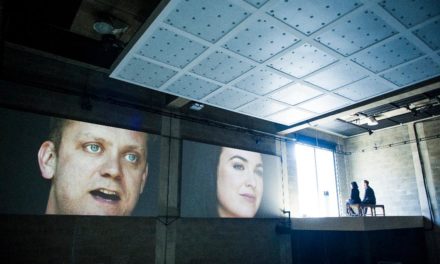Once the COVID-19 pandemic finally relinquishes its control of the world economy, the impact of artificial intelligence on the job market will no doubt earn its way into news headlines as a major societal concern. How and to what extent industry is impacted by A.I. will depend in large part on global regulations in place to ensure A.I. is developed ethically with the advancement of human society in mind. Right now, there are no such regulatory bodies.
To envision A.I.’s impact on society for better and worse is a topic of conversation among NGOs and foundations. Left to the imagination, a future run by A.I. seems a bit grim. What justifies A.I. advancement is the good that could come of it. A.I. has the benefits to replace workers in physically challenging jobs and/or ones that pose health risks. Healthcare is, arguably, improving due to A.I. A digital assistant could support astronauts in an expedition to Mars. A.I. could help fight climate change.
Still, it does seem odd though that we (the people) are not more up in arms that robots will take over much of what we do that makes us feel relevant.
Is it pride that paralyzes us? A robot beats a human chess master at chess. Does this mean we must abandon chess as a beloved pastime and competitive sport? Or can we continue to play chess for the simple joy of using our intellects?
Or is it an irresistible act of humility to support the advancement of A.I. considering we (i.e., scientists, engineers, and their investors) have given life to a new form of existence, in ways, of superior intellect? Robots are self-learning. It is conceivable they will evolve to teach us how to improve as a species.
The flip side of an argument in favor of A.I. is that a lot of it is designed to replace workers for no other reason than to increase corporate profit. It follows robots may decide to fulfill their roles mired in self-interest. How would that work out for humans? We are not the most likable lot.
Let us say we conclude we are not in the position to stop A.I., or we discover that we don’t want to, similar to how it would have been ill-advised to stop the invention of motorcars. Motorcar drivers displaced stagecoach drivers in the 1920s. The invention of Ford motorcars did open the door to many new jobs. It is not at all clear that A.I. advancements will provide new jobs for displaced workers.
Enter the arts. Similar to the Federal Theatre Project of the 1930s, community theater workshops could be funded to hire displaced workers, thrown together from an array of diverse backgrounds, to engage in conflict resolution through theater. As participants discuss topics, ones they might have sharp differences of opinion on, they develop a script and music for a performance that will be the culmination of the workshop. The point will be to find and utilize common ground enough to put on a show that participants can live creatively with the outcome.
The workshops could have themes. An important conversation going on right now in the U.S. is if the police force should be reformed or defunded. While it is hard to imagine humans evolving to be nonviolent–societies could decide to make it a level one priority to invest in the peaceful resolution of conflict through creative endeavor.
Another hot topic to ponder (while choreographing a dance routine…) is if currency is outdated to barter and trade within an environmentally-conscious community.
The impact of A.I. on our lives for good and bad would have its fingerprints all over the context of the ad hoc scripts. There is also the possibility that A.I. may not take off as media hype anticipates; as Covid-19 has shown, the unexpected can undermine well-laid plans.
Theater doesn’t need A.I. to flourish. Major funding into theater workshops is wise investing. It is also a radical act to give a meaningful economic role to the arts, not necessarily to replace, but to inform our current capitalistic system how to step aside to make space for dissenting voices to help to create a stable and fair economy—a sustainable economy for us all.
Who will pay for these theater workshops? Foundations, A.I. investors, and governments would be likely candidates.
Just as it is unlikely A.I. will lead us to a Utopian job free society, it will probably take a bit of a public uproar for the arts to be taken seriously as a field to invest in for the public good.
This post was written by the author in their personal capacity.The opinions expressed in this article are the author’s own and do not reflect the view of The Theatre Times, their staff or collaborators.
This post was written by Heather Waters.
The views expressed here belong to the author and do not necessarily reflect our views and opinions.

















